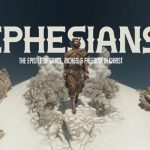“I remember the days of old; I meditate on all You have done; I muse on the work of Your hands” (Ps. 143:5).
What does it mean to remember something? What value is there in memory? We all recognize the importance of a good memory on a practical level. We draw upon our memory every minute of every day to successfully see tasks to completion. To forget something, to forget anything, is to handicap ourselves in one way or another. I am always frustrated after having forgotten something of some importance: something that I needed to do, something I needed to think about, something I needed to believe. Spend time with someone who has developed dementia, and you will witness firsthand the devastation that is the near loss of one’s memory. To be forgotten by one so beloved rivals the grief of death. After all, what is left of one’s life once they have forgotten to remember? One could say that our experiences shape us, but our memories guide us. They guide our thoughts, our actions, our beliefs, and our understanding. To lack memory is to lack all ability to think, live, breathe, and have our being.
A more theological approach to the subject of memory would see it as a reflective aspect of God’s own omniscient character, though clearly incomplete and lacking. God, of course, knows all things because He has decreed everything that comes to pass. For all eternity He has known and understood everything that was, is, and is to come. God “remembers” the past perfectly. His omniscience allows Him to act with all wisdom in the present, and to bring about His decrees in the future. People, then, being made in the image of God, reflect this omniscient quality of God through memory. We are but temporal beings confined within the present moment, but our memories, though imperfect, grant us the capacity to transcend each moment, draw upon past insight, and shape our present actions. To remember the past rightly is to tap into the possibility of wisdom.
It’s no wonder, then, that the Scriptures are replete with calls to remember. Moses warns, “Beware, lest you forget Yahweh who brought you from the land of Egypt, out of the house of slavery” (Deut. 6:12). Isaiah declares, “Remember the former things long past” (Isa. 46:9), and the psalmist proclaims, “I shall remember the deeds of Yah; Surely I will remember Your wonders of old” (Ps. 77:11). All throughout history, God has commanded His people to remember Him, His commands, His deeds, and His promises. Indeed, this call unto memorial is necessary, for when left to ourselves we quickly forget God and His Word, not so unlike our first parents, who, when challenged, forgot the clear and past teaching of the Lord, casting aside all wisdom for folly. How easily the creation forgets the God who created it; truly, He was and is the first forgotten memory.
Man must combat the degradation of his mind; for this, God has prescribed helpmates. The Lord equipped us with the written Word, preserving within it a perfect memory of Himself. The Word reveals that throughout history, God has gifted His people with signs, feasts, festivals, and songs to help us recall the mighty words, deeds, and promises of the Lord. Christians have inherited a great wealth of written memory. We possess psalms for singing and stories for reading. We’ve been given fresh signs and feasts for remembering the works and promises of our Lord. The sign of Baptism both declares a current reality and points back to the accomplished works of Christ. The Lord’s Supper, which He commands to take in memory of Him as often as we gather, reminds us of Christ’s atoning work on the Cross. It represents a current reality enjoyed in the Lord and points toward the future heavenly feast which will be enjoyed fully in His presence.
But as with all tools and aids, they are only as useful when utilized. The Christian who is not regularly consuming the Word, singing the psalms, or gathering with the body is ever losing the memory of the Lord. His commands become increasingly fuzzy, His past deeds become haze, and His promises become a shadow in our minds. The Lord, and His memory, slip from our grasp, as we sink deeper and deeper into a type of dementia, wherein we forget His face entirely, His name confused among the many in our minds, until one day –without realizing – He is but a stranger to us; and like with dementia, once those whom we love most have gone from our memory, so too goes our own life soon after we fall headlong into death. So let us not forget, but let us remember. Let us remember to be diligent in the regular observance of God’s Word, the singing of psalms, hymns, and spiritual songs, and acceptable worship, lest we should forget Him. Let us remember the days of old, meditate on all He has done, and muse on the works of His hands.






